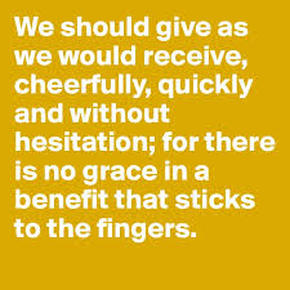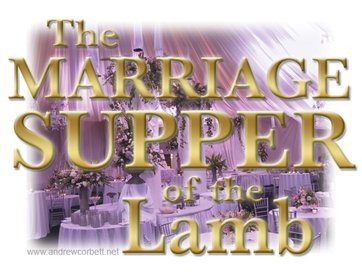
A couple of years ago I wrote a four-part blog series on grace. I started each of the posts with this quote.
“Grace is the most important concept in the Bible, Christianity, and the world. It is most clearly expressed in the promises of God revealed in Scripture and embodied in Jesus Christ himself.”
And I included the Merriam-Webster Dictionary definition.
a. unmerited divine assistance given humans for their regeneration or sanctification
b. a virtue coming from God
c. a state of sanctification enjoyed through divine grace
In that series the emphasis was on God’s grace to mankind. I wrote about the nature of God’s grace.
In the New Testament grace means God’s love in action towards men who merited the opposite of love. Grace means God moving heaven and earth to save sinners who could not lift a finger to save themselves. Grace means God sent His only Son to the cross so that we guilty ones might be reconciled to God and received into heaven. To make even the slightest contribution to our salvation is to rule out the possibility of grace. For one thing, any contribution on our part would be exaggerated in our own minds. - J. I. Packer
I wrote about God’s.
Common grace
The kindness or favor God gives to all mankind, believer or not.
Matthew 5:44-45 (NKJV)44 But I say to you, love your enemies, bless those who curse you, do good to those who hate you, and pray for those who spitefully use you and persecute you, 45 that you may be sons of your Father in heaven; for He makes His sun rise on the evil and on the good, and sends rain on the just and on the unjust. (Emphasis mine)
Saving grace
The provision of salvation through Jesus
Romans 5:15-17 (NLT)15 But there is a great difference between Adam’s sin and God’s gracious gift. For the sin of this one man, Adam, brought death to many. But even greater is God’s wonderful grace and his gift of forgiveness to many through this other man, Jesus Christ.16 And the result of God’s gracious gift is very different from the result of that one man’s sin. For Adam’s sin led to condemnation, but God’s free gift leads to our being made right with God, even though we are guilty of many sins.17 For the sin of this one man, Adam, caused death to rule over many. But even greater is God’s wonderful grace and his gift of righteousness, for all who receive it will live in triumph over sin and death through this one man, Jesus Christ.
Securing Grace
The favor of God by which the Christian's salvation is kept secure in spite of sin.
John 10:27-29 (NKJV)27 My sheep hear My voice, and I know them, and they follow Me.28 And I give them eternal life, and they shall never perish; neither shall anyone snatch them out of My hand.29 My Father, who has given them to Me, is greater than all; and no one is able to snatch them out of My Father's hand.
Sustaining grace
Grace given at special times of need, especially during adversity or suffering.
2 Corinthians 12:9 (NKJV) And He said to me, "My grace is sufficient for you, for My strength is made perfect in weakness." Therefore most gladly I will rather boast in my infirmities, that the power of Christ may rest upon me.
Sanctifying Grace
Sanctifying grace works within the true believer causing them to grow and mature and progress becoming more Christ-like.
Romans 8:28 (NKJV) And we know that all things work together for good to those who love God, to those who are the called according to His purpose.
Serving Grace
The Spiritual Gifts that the Holy Spirit has given believers are serving grace. The Greek word translated grace, charis is the root of the word charisma which is the word Paul used for spiritual gifts.
Ephesians 4:7 (NKJV) But to each one of us grace was given according to the measure of Christ's gift.
When I read an excerpt from Philip Yancey’s book, Vanishing Grace, I realized what I did not say in that blog series. I didn’t write about how those who were the recipients of God’s grace should respond because of it.
Grace is “unmerited favor” and those of us who have received it should, because of it, give grace to those we interact with whether they deserve it or not. Why? Because under God’s sanctifying grace we are becoming like Christ who though sinless gave His life for those of us who didn’t deserve it.
Romans 5:8 (NLT) But God showed his great love for us by sending Christ to die for us while we were still sinners.
Romans 8:29 (NLT For God knew his people in advance, and he chose them to become like his Son, so that his Son would be the firstborn among many brothers and sisters.
Philippians 2:5-8 (NLT)5 You must have the same attitude that Christ Jesus had.6 Though he was God, he did not think of equality with God as something to cling to.7 Instead, he gave up his divine privileges; he took the humble position of a slave and was born as a human being. When he appeared in human form,8 he humbled himself in obedience to God and died a criminal’s death on a cross.
The introduction to the excerpts from Philip’s book was “In imitation of the ridiculous love Almighty God has for each of us and all of us, let us live and love without labels.”
That should be our response to God’s gift of grace.

by Philip Yancey, from Vanishing Grace
Living “in the world,” we can look for natural opportunities to dispense grace — not just words — to those around us. Gabe Lyons recommends inviting community leaders, whether Christian or not, into church to tell how best to engage with the neighborhood and its problems. As he notes, African American churches have historically done that, finding ways to honor teachers, firefighters, social workers, and politicians, all of whom serve without much recognition.
A pastor friend of mine in Chicago operates an internet wedding site. Couples who don’t know a pastor, and thus look for one on the internet, contact him. He insists on counseling sessions before agreeing to perform the ceremony, and he always asks two questions: “Why do you want to get married?” (almost all of them are already living together) and “Why do you want a pastor involved?” Remarkable conversations unfold as the parties struggle aloud with their answers. As one said, “Well, if there is a God, marriage is so important that we think God ought to be involved somehow.”
Kathleen Norris writes about a “cocaine whore” in rural Montana who would sleep with anyone who could provide her with booze or cocaine, or merely show her the slightest bit of attention.
She found Alcoholics Anonymous first, then God, and then church. Soon she was signing up for every Bible study and volunteering for every church-ministry project, as well as for committees that others had to be begged to join. “Salvation took such hold in her that, as the pastor put it, he began to wonder if Christians don’t underrate promiscuity. Because she was still a promiscuous person, still loving without much discrimination. The difference was that she was no longer self-destructive but a bearer of new life to others.” The twelfth step in AA’s guide to recovery — helping others in need — is an act of gratitude. We respond to healing grace by giving it away.
Pastors in both places, Chicago and Montana, began with a good thing, love, and gently pointed toward something even better. Romantic love may lead the way to the Source of all love; passion rightly channeled brings life, not ruin.
I know a former Southern Baptist pastor in North Carolina who, against all odds, now runs a private cigar club. He explains, “I learned from my years in the ministry that when men go deep in conversation and get honest with each other, there’s usually a cigar involved. That’s when they talk about what really counts — sitting on a patio after a golf match or relaxing together on a deck when their wives are inside the house. So in our club we have volunteers available who strike up friendships and know how to respond when the men want to talk about their failing marriages or job layoffs or rebellious teenagers.”
Once, while speaking on the topic of grace in Toronto, I asked the audience about their own experiences conveying grace to others. One woman shocked us all: “I feel called to minister to telephone marketers. You know, the kind who call at inconvenient hours and deliver their spiel before you can say a word.” Immediately I flashed back to the times I have responded rudely or simply hung up. “All day long these sales callers hear people curse at them and slam the phone down,” she continued. “I listen attentively to their pitch, then I try to respond kindly, though I almost never buy what they’re selling. Instead, I ask about their personal life and whether they have any concerns I can pray for. Often they ask me to pray with them over the phone, and sometimes they are in tears. They’re people, after all, probably underpaid, and they’re surprised when someone treats them with common courtesy.”
Hearing such stories, I am aware how often I miss possible hinge moments in my own interactions with people. I marvel at the Toronto woman’s gracious response and think of the times I get irritated with marketers and with employees on computer help lines who don’t speak good English. I catch myself treating store cashiers and Starbucks baristas as if they were machines, not persons. I get a wedding invitation and groan at the hassle of having to shop for a gift and dress up. I rush away after a golf match rather than relaxing on the patio with my partners. Subtly or not so subtly, I let the other person know that I’ve been interrupted and need to get back to work. In the process, I miss golden opportunities to dispense grace.
"What would it take for church to become known as a place where grace is “on tap”?
All too often outsiders view us as a kind of elite club of the righteous.
An alcoholic friend once made this point by comparing church with AA, which had become for him a substitute church. “When I show up late to church, people turn and look at me. Some scowl, some smile a self-satisfied smile — See, that person’s not as responsible as I am. In AA, if I show up late the meeting comes to a halt and everyone jumps up to greet me. They realize that my desperate need for them won out over my desperate need for alcohol.”
One gray fall day in Denver I visited an urban church that makes grace the center point of ministry. This congregation addresses the contentious gay issue not by writing position papers but simply by welcoming all who come. Their bulletin expresses it this way:
Married, divorced or single here, it’s one family that mingles here.
Conservative or liberal here, we’ve all gotta give a little here.
Big or small here, there’s room for us all here.
Doubt or believe here, we all can receive here.
Gay or straight here, there’s no hate here.
Woman or man here, everyone can serve here.
Whatever your race here, for all of us grace here.
In imitation of the ridiculous love Almighty God has for each of us and all of us, let us live and love without labels.
From there I went to a barbecue fundraiser for a nonprofit organization that provides food for Denver’s hungry population. A number of sponsoring churches had sent representatives, and I agreed to say a few words and give away some books. The organizers hoped for a turnout of three hundred, but a cold, drizzly rain kept attendance down to less than half that. The Denver Broncos football team was playing that day, and it occurred to me, as I looked out over the sparse crowd huddled under umbrellas, that sixty thousand screaming fans in a stadium had gladly paid to sit through miserable weather for three hours. Instead, a cause like hunger attracted a small group of churchgoers, idealistic college students, and street people who always seem to know where food is being served.
In the sermon I had heard at church that morning, the guest preacher mentioned she had puzzled over the story of the widow who gave all she had, no more than a few pennies. Why did Jesus merely use her as an object lesson, contrasting her with the rich people who proudly made large contributions? Why didn’t He do something to address her state, perhaps by proposing a poverty program? The preacher told us her conclusion: “God leaves the justice issue up to us.” I had heard Gary Haugen, founder of the International Justice Mission, say something similar:
“God has a plan to fight injustice, and that plan is us — His people. There is no Plan B.”
I pondered that statement as I stood in the rain and watched a small crowd of volunteers assemble food parcels while a soul sister belted out, “His eye is on the sparrow.” For whatever reason, God seems to leave a lot of issues up to us. And the church totters on; we are, after all, the chosen channel for God’s good news.
Excerpted with permission from Vanishing Grace by Philip Yancey, copyright Zondervan, 2014.
|
|


















 RSS Feed
RSS Feed